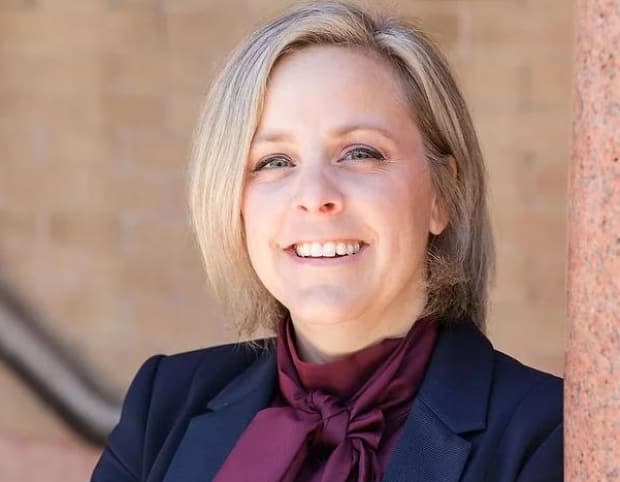Unvaccinated dad loses custody of at-risk child

A New Brunswick father who is refusing to be vaccinated against COVID-19 has lost his right to see his immunocompromised child and his two other children in person.
Justice Nathalie Godbout of the Court of Queen's Bench writes in her decision that she was ruling "with a heavy heart" but that the health risk to the 10-year-old child made the decision necessary.
And she debunks the "research" the father did himself that he says led him to question the safety and efficacy of the Pfizer-BioNTech vaccine.
"His own anecdotal research on such a highly specialized topic carries little to no weight in the overall analysis when measured against the sound medical advice of our public health officials," Godbout writes.
The parents separated in 2019 and agreed to share custody of their three children.
But the COVID-19 pandemic and the refusal of the father and his new spouse to be vaccinated posed a serious risk to the children, Godbout wrote, especially the middle child who gets specialized care for non-cancerous tumours in her blood vessels.
Their mother asked the court for a change to the custody agreement ending the father's in-person access to his three children.
"As the parents who are caring for [the child] 50 per cent of the time, in close quarters, unmasked and unvaccinated, they are well-positioned to transmit the virus to [the child] should they contract it, this despite their best efforts," the ruling says.
"It is no contest: the current science in the face of a highly contagious virus far outweighs Mr. F.'s layman wait-and-see approach."
The parents and the children are not named in the 26-page court ruling. They are only identified by initials.
The new order allows the father "generous" visiting rights via Zoom but no in-person contact. If he gets vaccinated, he can return to court to ask for a change to the decision.
The father was also refusing to consent to the children being vaccinated. Godbout ruled the mother could get that done without his agreement.

Fredericton lawyer Grant Ogilvie, who represented the mother in the case, said the three children have already received their first doses of vaccine since the ruling on Monday.
"She was ecstatic in some regards," Ogilvie said. "But this isn't a case where she wants to take the children away from their father. This is what's best for the children, period. She's acknowledged this is going to have an impact on the children, but she said, 'I have to do what's best for them.'"
Ogilvie said he recently won a similar order in another case, but this decision by Godbout is the first written ruling of its kind in the province and will serve as a precedent for other cases.
The lawyer for the father in the case could not be reached for comment.
Ruling welcomed
Moncton family lawyer Sheila Cameron said the ruling is a welcome development because COVID-19 has complicated custody agreements in all kinds of ways.
Agreements that involve one parent dropping a child off at school and the other picking them up have been disrupted by at-home virtual schooling, for example.
In other cases, children have contracted COVID while at the home of one parent just before having to return to the home of the other parent.
"We're definitely seeing a lot of issues that I've never seen in 29 years of practice, and thankfully we have judges giving us guidance on those things," Cameron said.

Fredericton family lawyer Natacha Bossé said some separated parents unwilling to be co-operative are even using COVID-19 "as a weapon" to deny the other parent access.
"It has taken the already-difficult issues to a whole other level."
Resolving such cases in court can take weeks or months, Bossé said.
"By the time we get to our already very busy courts, it does take time, and it takes its toll on the kids and the parents," she said.
Godbout's decision could offer a ray of hope for other parents in similar situations, including Penobsquis mother Shelbi McLellan, who contacted CBC News recently.

She's been asking the province for help in her case but has been told her only option is to ask the court to change the custody agreement for her three-year-old daughter, a route she said she can't afford.
McLellan shares custody of her daughter with the girl's father, who refuses to get vaccinated.
McLellan herself is immunocompromised because of medication she takes to treat her Crohn's disease and colitis. That means she doesn't get as much protection as others from the three doses of COVID-19 she's had.
She worries her daughter will catch COVID-19 at her father's home and then infect her.
"How it is OK for the visits to be more important than the parent's life?" she said.
"I've reached out to everyone in the government to try to change this for our children and for those of us who are vulnerable like myself. … I don't think it's fair that the parents who are not vaccinated should get all these privileges when the ones who are are scared."
In an email from the provincial government's COVID-19 help line, officials told McLellan they could not ignore the existing legally binding custody order.
"As the other parent in a custody agreement he would have the right to see his child – whether he is vaccinated or not," the email said. "We advise that the best course of action for you, if you do not want the visitations to continue, is to seek changes to the custody order."
Complicated issue
Cameron said McLellan's situation is more complicated because family law rulings are always based on the best interests of the child, not the parents.
"We haven't faced a situation yet where the actions of one parent in one household could have a direct and adverse medical impact on the parent in the other household. I can't think of a similar situation ever in family law."
She and Ogilvie both said the best route would be to focus a court application on the health risk to her daughter.
McLellan said she doesn't have the money to hire a lawyer to pursue the case, and the legal aid lawyer who's been representing her did not feel going to court would get anywhere. That legal aid lawyer did not respond Thursday to a request for comment.
In the case Godbout ruled on, the mother, identified as Ms. M., first learned last July that the father, Mr. F. was refusing to get vaccinated. He has been refusing to consent to the children being vaccinated since last November.
Invalid 'medical exemption'
In her ruling, Godbout said the father, Mr. F., and his new spouse got what they claimed were "medical exemptions" last October from a New Brunswick doctor, Paul Smith.
But Ms. M. learned from the College of Physicians and Surgeons of New Brunswick that Smith's licence had been suspended and his exemptions were not valid.
The judge said the "exemptions" were one-sentence documents with "fill-in-the-blank" sections where the unvaccinated person could write their name and birth date.
She said that like judges in other provinces, she was taking judicial notice of key facts, accepting that vaccines are safe and effective and that while children are less likely to get seriously sick from COVID-19, they can become very ill and can also spread the virus.
She notes that the father, Mr. F., appears to quote selectively from a CBC News report on vaccines, citing comments that support his doubts while being "blind to evidence" that contradicts his beliefs.


